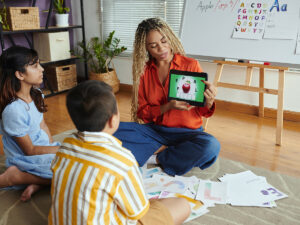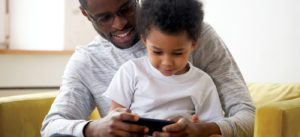
In this multiple methods, community-engaged project, we leverage advancements in technology to develop an innovative approach to accelerate testing and translation of generalizable evidence-based practices (EBPs) in education. This pilot test will look at alphabet learning.




